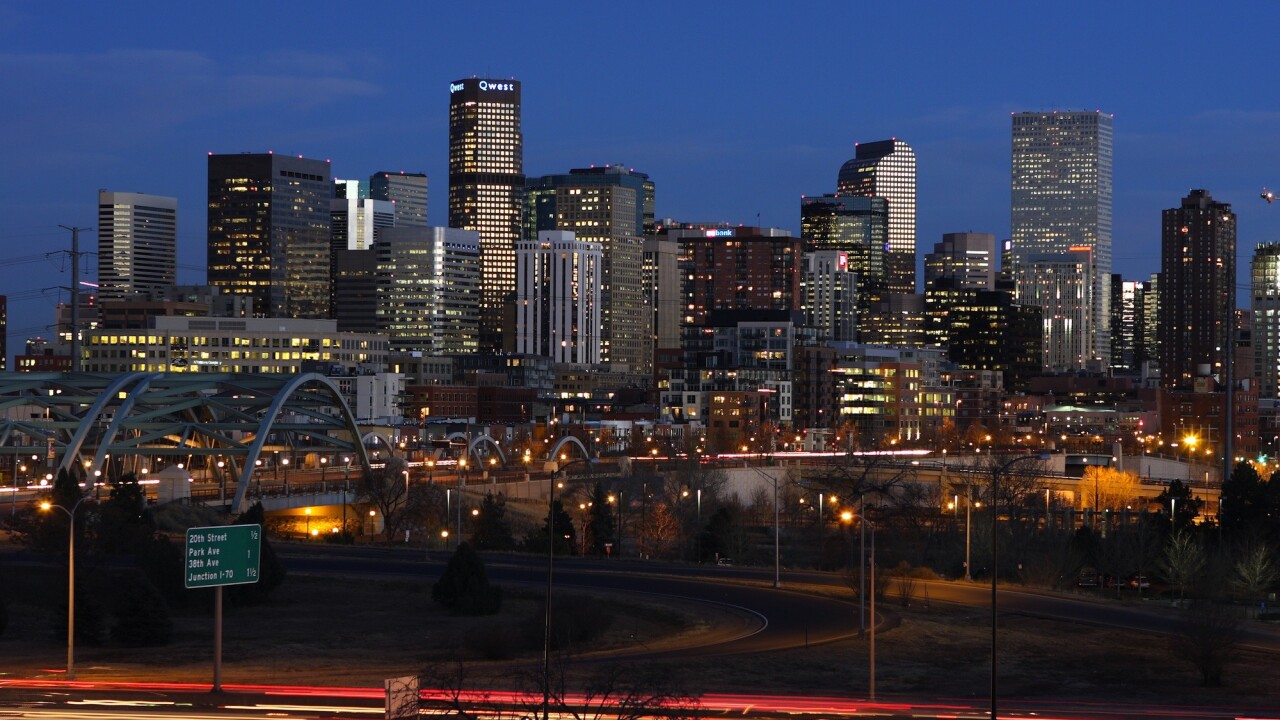
Stuart Wall, CEO of Signpost, a small business marketing automation platform funded by Spark Capital, OpenView Venture Partners and Google Ventures.
In January, Denver will become one of the few American cities that allows its residents to purchase and recreationally consume marijuana, a move that is expected to create jobs and generate tax revenue. Roughly 1,200 miles away in the heart of Silicon Valley, San Jose Mayor Chuck Reed is pushing for restrictions that will shutter many of the city’s medical marijuana dispensaries.
Denver’s burgeoning pot industry is just one signal that, driven by the diaspora of the young, educated and forward-thinking, the city is working to displace the incumbent tech Mecca as an innovation hotbed.
Silicon Valley has long been the perfect oasis for that particular demographic (think: a young, barefoot Steve Jobs dreaming up Apple’s future while on LSD) to create and innovate technology that changes our lives.
But as many in the Valley already know, it’s no longer Steve Jobs’ Silicon Valley—and there’s room for disruption in places like Denver, where a renewed commitment to innovation is transforming the city.
With a vibrant and rapidly-growing tech ecosystem, there are a number of reasons why Denver should be on your radar for 2014:
A strong, constantly evolving tech environment
Colorado houses existing tech giants such as IBM, Oracle and Lockheed Martin, as well as an emerging and thriving startup scene. Denver has more tech startups per capita than any U.S. metropolitan area, including SendGrid, Ping Identity, Rally Software (which went public on NASDAQ this year; RALY), Sympoz, Datalogix, Newsgator, TrackVia, Convercent, Printfection, rentbits, and hundreds more.
With this existing ecospace that’s only going to evolve, expect to see more startups basing their companies in the Mile-High City.
Abundance of highly-educated and committed talent
Like Silicon Valley, Denver is among the most educated cities in the U.S., with 53 percent of the population holding a bachelor’s degree.
Colorado is the number one relocation destination in the US for skilled workers ages 25 to 44. And it’s no wonder – the laidback, outdoorsy culture draws highly-skilled, overworked employees from larger cities.
A young and progressive population that is challenging the status quo
The median age in Denver is 33 and there are 15 percent more people aged 18-45 in Denver than in Silicon Valley as a proportion of their overall population.
The young, driven, and engaged population of Denver is contributing to a vibrant arts and culture scene; in fact, Denver citizens contribute more public funding for the arts per capita than any other U.S. city. Politically, Denver’s local government has championed social causes, including increased gun control, LGBT rights and programs for the homeless.
A quality of life that beats Silicon Valley’s
Denver residents enjoy a significantly lower cost of living; housing costs are half that of the SF Bay Area while utilities, food, transportation and healthcare are 15 to 25 percent less. At 4.63 percent, typical tech worker income tax in Denver is half of that in California (9.3 percent).
Indeed, Denver’s average tech worker salary ($100K) affords a $150,000 Silicon Valley lifestyle, enabling them to savor the countless local breweries (Denver brews more beer than any other U.S. city), restaurants and nightlife. With 300+ days of sunshine per year, Denverites take advantage of outdoor activities like hiking, snowboarding, skiing, and biking.
Location, location, location
Aside from its stunning natural beauty, Denver’s location has a practical business application: the Mountain Time Zone (UTC−7) permits convenient communication with the East and West coasts, South America, Europe, and Asia all in the same business day.
Its elevation also affords it the recognition as the largest U.S. city to offer a ‘one-bounce’ real-time satellite uplink to six continents in the same business day.
Access to capital and resources is gaining momentum
In 2012, Denver startups raised more than $280M, with 33 startups raising $1M or more. Denver Mayor Michael B. Hancock recently discussed in his Wall Street Journal op-ed that Denver is “working with venture-capital firms to bring more seed money into the city” and is “investing its own dollars to establish a new center for entrepreneurship and technology… that will be a home base for emerging high-growth businesses in graphic arts, technology and consumer entertainment.”
Organizations like the Downtown Denver Partnership and the Colorado Technology Association—as well as the popular and rapidly-growing Denver Startup Week—are also stimulating growth in the Denver tech ecosystem.
Encouraged by the staggering growth of its local tech industry, Denver has made its commitment to fostering technology innovation clear. The city is enhancing tech education options at all levels; non-profit organizations are helping early-stage entrepreneurs gain access to much-needed funding and resources; and regional government bodies are opening new market opportunities with recent growth initiatives, including increasing domestic and international flight services.
The result is a rapidly-growing local tech economy: tech hiring is among the highest in the nation at 1.7 percent, handily outpacing Silicon Valley’s 0.45 percent. As for Signpost, we anticipate growing our Denver office from 30 to about 100 in 2014.
To quote Patrick Quinlan, CEO of Denver-based Convercent, “You may not know about all the work we’re doing in Denver, but you will soon.”
We couldn’t agree more.
Image credit: Evan Meyer/Shutterstock
Get the TNW newsletter
Get the most important tech news in your inbox each week.




